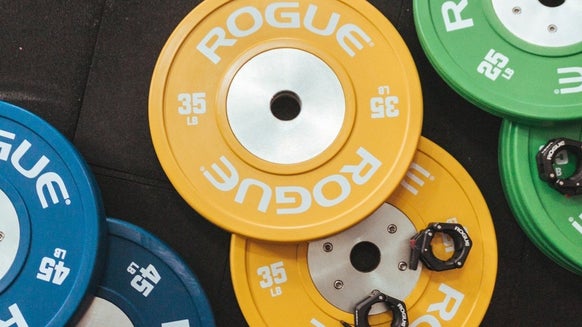Time Off Doesn’t Mean Lost Gains, Muscle Memory Explained

One of the biggest worries for gym-goers is losing muscle after taking a few weeks off, for both strength and size. People work years to achieve their physique, so the fears are understandable.
But is there really so much no need for concern? Our favourite nutritionist, Richie Kirwan, is here to ease any anxieties and explain exactly what happens if you take a break from the gym.
When gyms shut during the 2020 lockdown, gym-goers were worried. They were worried partly about the pandemic but mostly about their gains. Would all the time off mean they’d lose their hard-earned muscles? Lacking answers, many bought gym equipment so they could work out from home. But were their worries misplaced? Will a prolonged period out of the gym result in significant muscle loss? Let’s see what the science says.
The science
One study looking into muscle loss took a group of young healthy men and kept them in bed for a whole week. What a dream. After a week of next to no activity whatsoever, participants had lost on average 1.4kg of lean body mass each. That can take months of hard work to build.
In another study, this one looking into the effects of training followed by detraining, 24 men were observed as they completed 10 weeks of training followed by a six-week break. Their muscle mass was measured at the start of the study, once more after 10 weeks of training and then again after the six-week break.
After the 10 weeks they divided the men into three groups based on how much muscle they gained in their vastus lateralus, one of the main muscles in the quads. The group with the biggest mass increase was called the high respond group. The other two groups were called medium responders and low responders.
When muscle mass was measured again after the six-week break, only the high responders saw a statistically significant drop in muscle size. This suggests that the better you are at gaining muscle, the better you are at losing it too.
Earlier research in the same field of study observed a group of young women during a 20-week resistance training programme. Obviously enough, they gained strength and muscle size. They then stopped training completely for 32 weeks, almost eight months.
Their strength dropped considerably during this period of detraining, but their lean body mass changed slightly, and it also didn’t return to pre-training level.
After another six weeks of training, they returned to the same muscle size and strength as after the initial 20 weeks. While at first it took a while to build strength and size, the participants were able hit peak relatively quickly after detraining.
The name for this area of research is muscle memory. It’s good news for gym-goers worried about a prolonged break. Essentially, muscles can “remember” previous training experience. Even if we stop training for a while and lose some size and strength, this “memory” means muscles are regained soon after getting back in the gym.
Science behind muscle memory
It sounds pretty damn cool to us, but how does it actually work? No one knows for sure yet, but researchers are working on the answers.
The number of nuclei in muscle cells
If you remember school biology, you might recall that almost all cells in our body have a nucleus, the control centre of the cell. The nucleus contains the DNA that allows the transcription of all the proteins that make a cell work.
Muscle cells can have multiple nuclei and when we train and damage our muscles, a special type of stem cell called a satellite cell joins with our muscles to help their recovery. And if you didn’t listen in biology, stem cells are cells that can turn into other types of cells under the right conditions.
When we train hard and regularly, we increase the amount of satellite cells that merge with muscle cells. This increases the number of myonuclei. These myonuclei can stay around for months or even years, even if you detrain. When you start training again the myonuclei can all work together to help increase protein synthesis and muscle growth much faster than it will have taken you to grow the muscles in the first place.
This would account for only a small part of muscle memory, but there’s also another researched area known as epigenetics.
Epigenetics
We all have genes that determine everything about our bodies, and we can’t change them. But lifestyle and environmental factors can make them more or less likely to become active.
Resistance exercise can cause epigenetic changes in some of the genes involved in muscle growth. Exercise can cause some genes to have less methylation, which makes them more active, and these changes can last during detraining. Methylation is the process by which a chemical group called methyl bonds to certain genes and changes how often the genes get switched on. More methylation means a gene is less active and vice versa. When someone retrains after a period of inactivity, their genes are epigenetically primed to grow; they can then get back to previous levels of muscle size and strength.
But, as said, this is only scratching the surface on how muscle memory works, and there's plenty more research to be done.
Take Home Message
So maybe now it’s time to stop worrying about losing gains after a few weeks off. Chances are you might lose some gains, but it shouldn’t be a major cause for concern. A beautiful, mysterious thing called muscle memory means you’re likely to get your gains back sooner than it took to get them in the first place. Magical.
GET MORE FROM HIM HERE:

Simple But Flawed, BMI Explained
Richie breaks down the facts of the technique founded in the 1800s.

Lose Fat & Maintain Muscle | How To Cut Safely
The 'shredding diet' explained.







